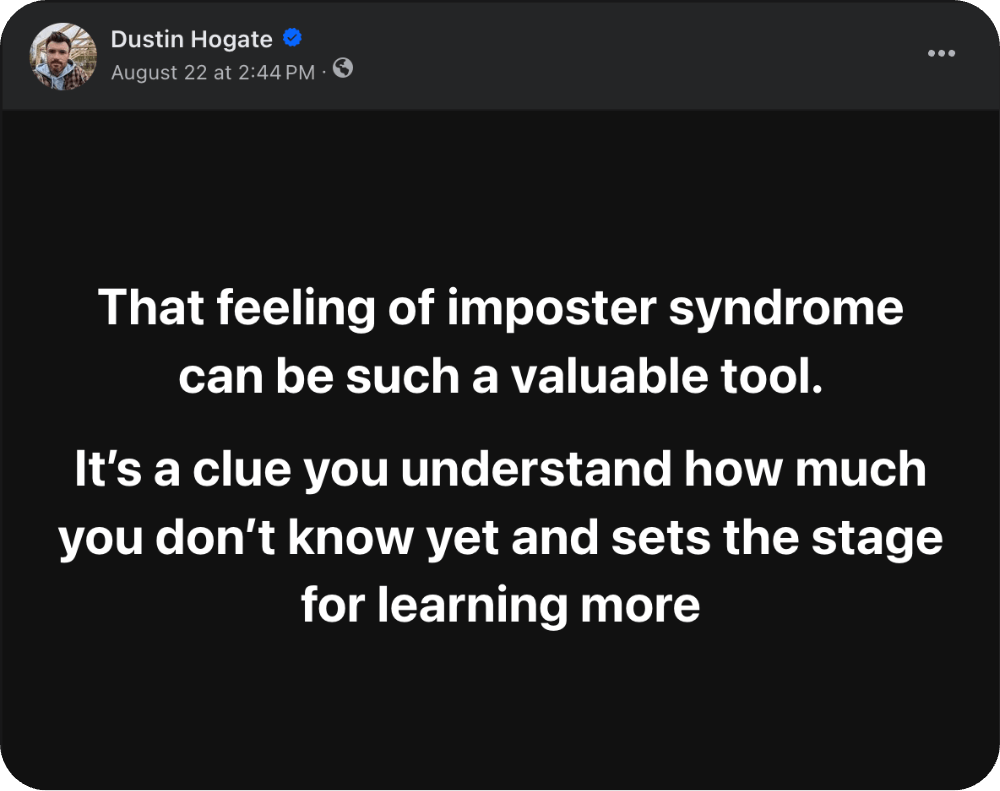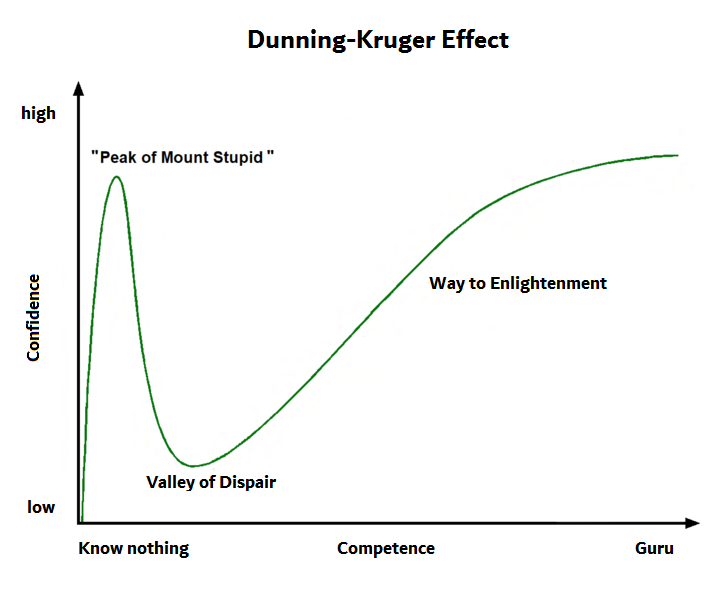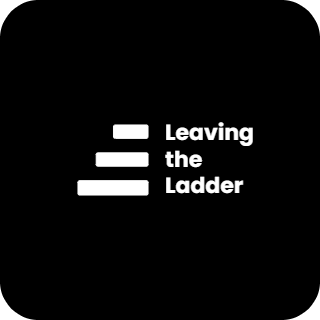How High Performers Turn Self-Doubt into Success
Impostor syndrome often haunts high performers, making them feel unworthy of success. Yet, it's not a sign of weakness but of growth. In contrast to the Dunning-Kruger effect, it pushes top achievers to expand their skills and deepen their knowledge.
Let's dig a bit deeper into this post:

I and so many of my friends who run successful businesses or operate at high levels in business have expressed the same - They feel like an impostor.
As if building a reputation for being one of the best in their field, was not earned even though they know they earned it, and the evidence is clear and abundant.
Analyzing the result of their work will tell you the same.
What is impostor syndrome?
It’s that sneaky little voice in the back of your head whispering, "You're not good enough. You don't deserve to be here. Any minute now, everyone's going to figure out you're a fraud."
It's that nagging feeling of self-doubt, that fear of being exposed as a phony, even when you've got the skills and experience to back you up.
It's like you're constantly waiting for the other shoe to drop, convinced you're just one mistake away from being found out.
And here's the kicker… It doesn't matter how many accolades you've racked up or how much success you've achieved, that little voice can still creep in. And I believe, for high performers it is always there.
I don’t believe impostor syndrome is a bad thing. In fact, I think it can be a sign that you're pushing your boundaries, which is what high-performing people do.
It's a reminder that you're aware of how much you don't know, which can be a powerful motivator to keep learning and growing.
And as I have said before, I can attribute a large part of any success I've had to endless curiosity for things I don’t understand - Constant learning is how we stay high performers.
The contrast with Dunning-Kruger
The “Dunning-Kruger effect” is what we have respectfully dubbed the research of two Psychologists from the 90’s and their research paper Unskilled and Unaware.
It's quite the read if you are interested (it will take awhile)
The actual title is far more interesting: “Unskilled and Unaware of It: How Difficulties in Recognizing One's Own Incompetence Lead to Inflated Self-Assessments”
There is a lot to that research, but in essence its this:
Through testing of skilled competent people and unskilled incompetent people, they evaluated two things:
- How they actually performed vs how they thought they did
- How they performed vs how they though others did
Through the study they found that often, people who were incompetent and unskilled at a given task were more likely to overestimate their ability to perform.
In contrast, people who were competent and skilled, underestimated their ability to perform.
Here is a more familiar graph of the concept:
Modern Interpretation of Dunning-Kruger's Paper
Worth noting
I'm summarizing the research to make a point, but I do believe it's a good explanation of the concept we're covering here.
Here’s what I'm getting at.

Low Performers vs High Performers:
Low performers start new things with a high degree of confidence, quickly realize how much they don't know, decide it’s too hard to learn and then quit. They repeat this again and again with something new.
They don't spend long enough doing any one thing to get good at it, understand it, or accurately assess it. They never feel like an impostor, because they never understand that they need time.
High Performers start new things and have the same problem, but when they get to the “Valley of Despair” they push through it.
As they push their way up they gain competence and confidence, but at a healthier rate because competence grows faster than confidence.
High performers feel like an impostor because the more they learn, the more they realize they don't know and they understand how to balance their current ability, with the ability that is needed to be great.
And, they understand that no matter how much time they spend they will never understand it all so they don't constantly choose new paths, they carefully pick and stick one ones they can actually improve on.
